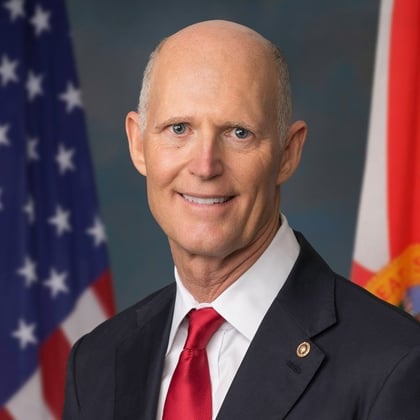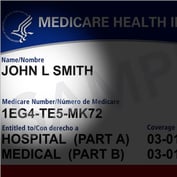A wealthy Senate Republican called Wednesday for tightening the rules taxpayers use when determining whether income should be subject to the 3.8% net investment income tax.
Sen. Rick Scott, R-Fla., talked about the NIIT, or Medicare tax, during a hearing the Senate Budget Committee held to discuss ideas for raising revenue for the Medicare program and increasing its solvency.
Sen. Sheldon Whitehouse, D-R.I., the chairman of the committee, is trying to round up support for S. 1174, a bill that would increase the net investment income tax rate to 5% for some high-income taxpayers, and broaden the base of that tax, by applying the tax to earnings from active S corporations and the earnings of active limited partners.
Scott pointed out during the hearing that President Joe Biden and his wife, Jill Biden, took some income from books and speeches out of their net investment income tax calculations by classifying the income as “S corporation” income, or income earned by a company organized under subchapter S in chapter 1 of the Internal Revenue Code.
“That’s clearly something that ought to be fixed,” Scott said. “Because it’s clearly unfair that people are doing that.”
What it means: Democrats and independents who caucus with them hold 50 seats in the Senate and use votes from Vice President Kamala Harris to break ties.
Republicans have 50 seats in the Senate.
If Scott is open to the idea of expanding the reach of the net investment income tax, that could increase the odds that lawmakers trying to cut the federal budget deficit or fund new programs will suggest using net investment income tax scope expansion as a “pay for.”
Medicare solvency: Whitehouse held the hearing because of concerns that the trust fund supporting the Medicare Part A hospitalization program will run dry in 2031.
If the trust fund empties, Congress takes no action, and the program and the economy perform as government forecasters expect, Medicare would generate about enough revenue from current payroll tax revenue and premium payments to pay 89% of the expected claims.
Whitehouse said that, as of early Wednesday, the federal government was nearing a possible shutdown because “House Republicans are once again trying to make the tax system even less fair, to give more freebies to Big Business and billionaires.”
“Republicans over there want to maintain the massive exemption for inheritances to wealthy heirs,” Whitehouse added, referring to efforts to extend a provision in the Tax Cuts and Jobs Act of 2017 that doubled the estate tax exemption. The provision was temporary and is set to expire in 2026.
Sen. Charles Grassley, R-Iowa, the highest-ranking Republican on the committee, rejected the idea that Republicans are hostile to Medicare.
“We all recognize that Medicare as well as Social Security are very much a part of the social fabric of America,” Grassley said. “They may be government programs, but they also interact with the private sector retirement and health benefits as well, so it’s not something that just government does.”
The net investment income tax: Tax rules let taxpayers classify certain kinds of income as wages and some as business income. That flexibility affects all Medicare and Social Security payroll tax bills.
When the Affordable Care Act of 2010 added the net investment income tax, the flexibility also affected the tax base for the NIIT.








 September 28, 2023 at 09:14 AM
September 28, 2023 at 09:14 AM












 Copyright © 2024 ALM Global, LLC. All Rights Reserved.
Copyright © 2024 ALM Global, LLC. All Rights Reserved.